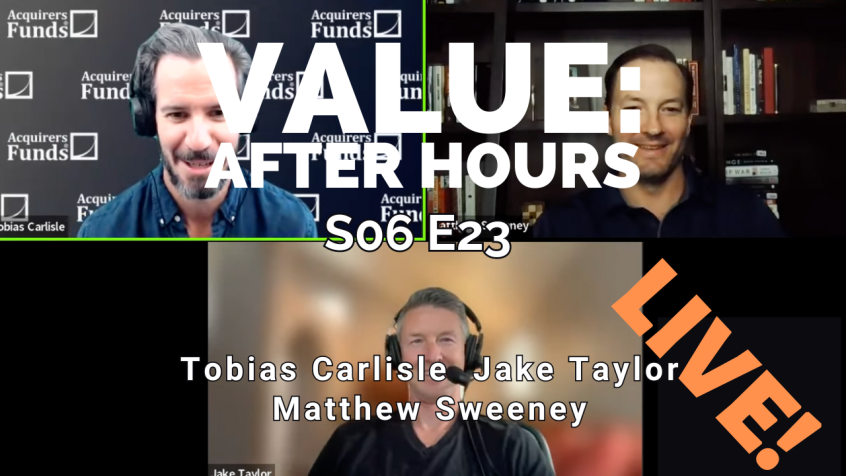During their recent episode, Taylor, Carlisle, and Matt Sweeney discussed Why Pod Shops Are Gaining Popularity Among Large Capital Pools, here’s an excerpt from the episode:
Tobias: Do you want to explain what a pod shop is, and then what’s your thoughts?
Jake: As if were five years old.
[laughter]Matthew: High level massive hedge fund platform, where there are many different pods, each pod being a PM who typically has a sector focus or a product focus or something like that. They typically run net neutral, so they’re not really taking a market risk. And then at the parent level, they’re levering it up several times and then running super tight risk controls. But there’s been a lot of articles over the last, I don’t know, a year, 18 months, maybe even two years about how much money has flowed to the pod shop structure over the last, that period, I guess. There’s been some commentary too around what that means for the market, which–
Actually, I think it was when Brian Bares was on just a week or two ago. He was talking about how in today’s market, if you miss earnings by a penny, the stock could be down 20% or whatever, because a lot of the money is in these pod shops, where a big part of the strategy, it’s typically super short-term holding period. I know some of them– I don’t want to name any names, but some of them, if you’re a manager on the platform, you get charged for your capital. Some of them, if you hold a position more than 30 days, the rate you have to pay just to access your capital goes up. So, you are really incentivized to have super short-term holding periods, which means you’re just trying to game the events. You’re trying to game whatever happens with earnings or maybe it’s a conference presentation or whatever it might be.
Look, the model has been very successful. I sometimes wonder how much of the success of the model has been because of the interest rate environment. Meaning, that if you’re running four to six times levered and you’re not paying anything for that extra capital, well, then you can afford to recruit more pods. If you have more pods, you’re smoothing your returns even more, and then you can lever it even more, in theory. Then rates go up. I don’t know what happens if that starts to unwind a little bit. They’re a huge factor in the market these days. It’s probably not good.
Jake: Plus, volatility has been just hardly anything.
Matthew: Yeah. So, I don’t know. That’s definitely another factor to think about though as an investor. It’s funny because not long ago, one of the major pod shops filed, as all of a sudden, like a huge holder of one of my positions. I got emails from a couple of people saying, “Oh, did you see–? They filed?” I said, “Yeah.” All that– [crosstalk]
Jake: Next week.
Tobias: Wait them up.
Matthew: That means there’s a big seller in three months or whatever it is. I don’t know.
Jake: I have a little bit of possible, the hypothesis on some of this, why so much has flown to the pod shops. I think some of it is the large pools of capital like foundations and endowments have– One, they have not been getting the cash back from their private side as much as they thought they were going to. So, there’s been a lot of illiquidity in the privates. What that means then, is to meet their obligations for tuition and whatever the budgets at the schools, they have had to find liquidity somewhere. So, where do you find liquidity? That’s like your public managers. They’re much more liquid than your private.
Then therefore, if you’re very much stuck in privates, you need to have liquidity terms that are much easier to handle, and the pod shops are good at providing easy come, easy go liquidity, relative to say like a long only value manager that’s looking three to five years out. So, therefore, more money sloshes into the pods because they know that they can get their hands on it again, easier if they need to, almost like– Not that it’s a money market fund, but they’re treating it as kind of- [crosstalk]
Tobias: Short term?
Jake: Yeah, it’s a much shorter-term investment. Therefore, the people who are in the middle, who are public equities long term, have gotten squeezed out by short-term one side and then private on the other that’s locked up.
Matthew: Yeah, that makes perfect sense to me.
You can find out more about the VALUE: After Hours Podcast here – VALUE: After Hours Podcast. You can also listen to the podcast on your favorite podcast platforms here:
For all the latest news and podcasts, join our free newsletter here.
Don’t forget to check out our FREE Large Cap 1000 – Stock Screener, here at The Acquirer’s Multiple:



